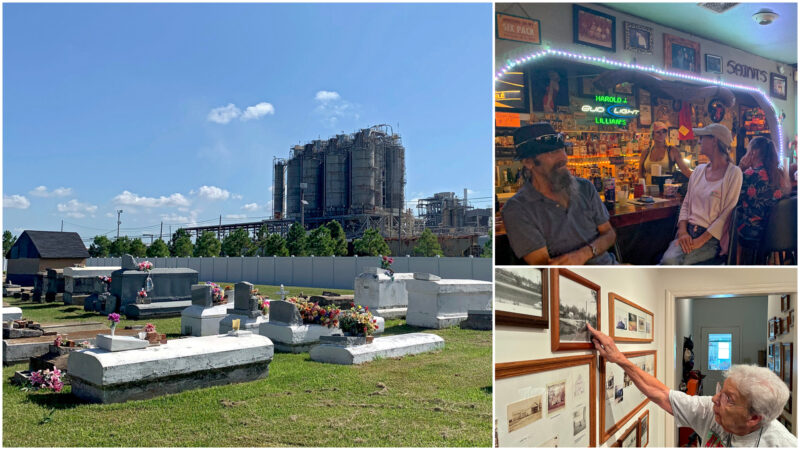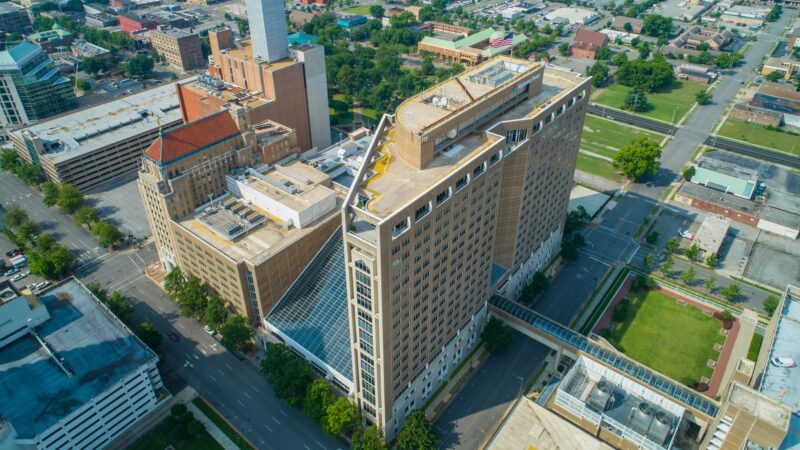Place, Erased: A look at Gulf South communities transformed by forces beyond their control
The “Place, Erased” series focuses on three towns and communities devastated by natural or man-made environmental shifts in the Gulf South: Revilletown, Louisiana, Clermont Harbor, Mississippi, and Easonville, Alabama.
Drive throughout the South and you’ll encounter towns that have been erased. Places that were once full of culture and community are devastated, and in some cases wiped off the map entirely, after major environmental shifts — some natural, some man-made.
In a three-part series, Gulf States Newsroom reporters Danny McArthur and Drew Hawkins traveled across Alabama, Louisiana and Mississippi to examine the journeys of these towns.
Easonville, Alabama: Lessons from a drowned town
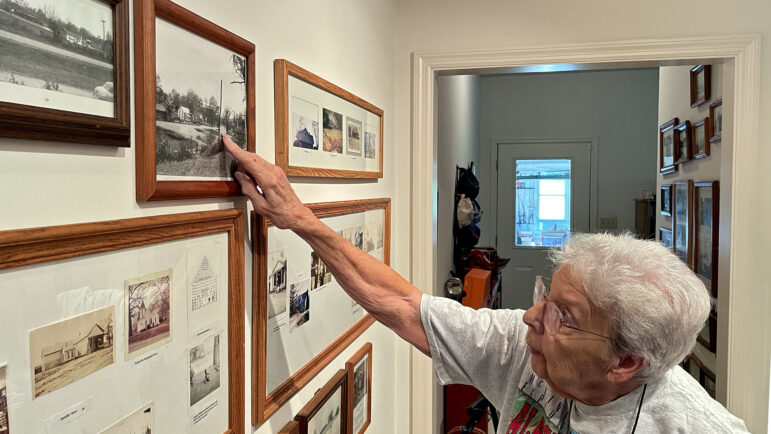
Easonville, Alabama was a rural, but thriving, town until an Alabama Power project drowned it to create the Logan Martin Dam.
Sixty years later, residents living near an Alabama mountain faced the same threat. In both cases, the project was touted as a potential green energy source.
Danny McArthur speaks to residents from both communities to determine the overlooked cost of progress in these man-made environmental shifts.
Read More: Place, Erased: How a drowned Alabama town still holds lessons 60 years later
Revilletown, Louisiana: Toxic neighbors
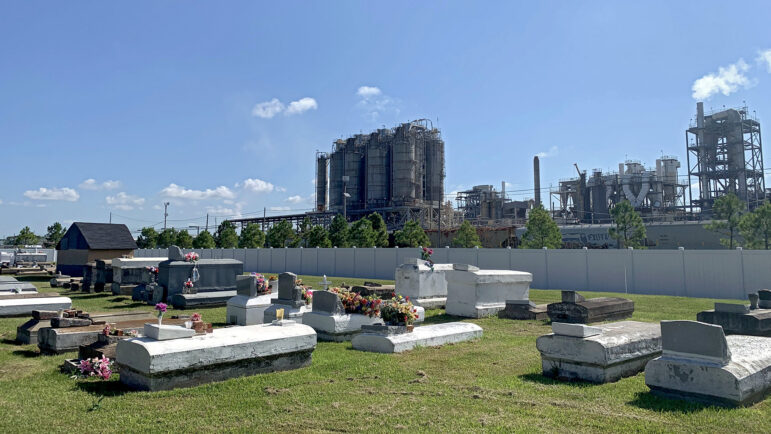
When industry brings toxic pollution to town, Black residents are often in the cross hairs for relocation.
The residents of Revilletown in Southeast Louisiana found themselves in this situation after a chemical company moved in next door to take advantage of the area’s resources. For decades, Revilletown was a close-knit community with about 100 or so residents. But by 1987, enough toxic pollution forced the residents to relocate.
But Revilletown’s story did not end there. Drew Hawkins details the yearslong legal battle over who owns the town’s cemetery.
Read More: Place, Erased: The fight for the remains of a Louisiana town
Clermont Harbor, Mississippi: Ghost town or not?
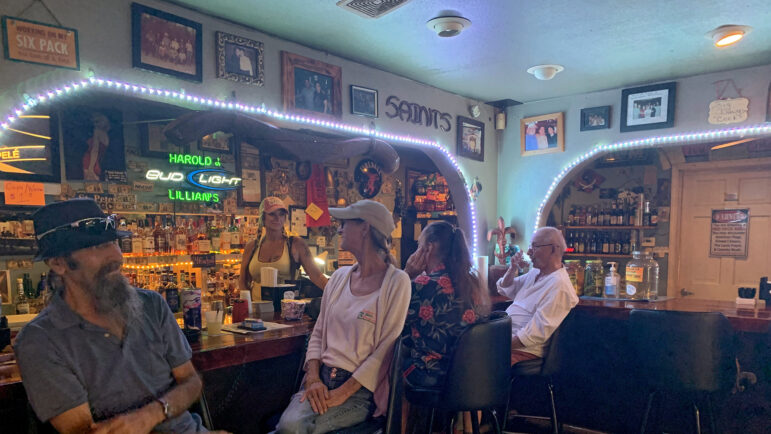
When is a ghost town actually a ghost town?
That question lingers over Clermont Harbor, Mississippi, an unincorporated town along the Mississippi Gulf Coast that technically doesn’t exist anymore —the town has been wiped off most maps in the years following Hurricane Katrina.
But, Danny McArthur talks to the residents who have kept the community alive in the face of climate change.
Read More: Place, Erased: Is this Mississippi community really a ghost town? It depends on who you ask
This story was produced by the Gulf States Newsroom, a collaboration between Mississippi Public Broadcasting, WBHM in Alabama, WWNO and WRKF in Louisiana and NPR.
Alabama utility commission allowed to hike prices behind closed doors, judge rules
The decision on Monday rejected a lawsuit filed by Southern Environmental Law Center on behalf of Energy Alabama, a nonprofit that advocates for renewable energy sources.
In ‘The Jailhouse Lawyer,’ Calvin Duncan fights wrongful convictions behind the razor wire
While incarcerated at the Louisiana State Penitentiary, Duncan would help hundreds of prisoners file appeals for their cases and motions for improved treatment.
DOGE keeps gaining access to sensitive data. Now, it can cut off billions to farmers
DOGE recently gained high-level access to a database that controls government payments and loans to farmers and ranchers across the U.S.
Lena Dunham isn’t trying to reinvent the rom-com. That’s why ‘Too Much’ works
The new Netflix series stars Megan Stalter (also Kayla on Hacks) as a 30-something who moves to London after a breakup.
Photos: Before-and-after satellite images show extent of Texas flooding destruction
Before-and-after images show how the Guadalupe River surged and devastated towns across Texas.
‘We all want to be Superman; Superman wants to be us,’ says James Gunn
Morning Edition host A Martínez asks writer/director James Gunn, the man behind the reimagining of the entire DC Comics universe for the screen, about his vision for Superman.

